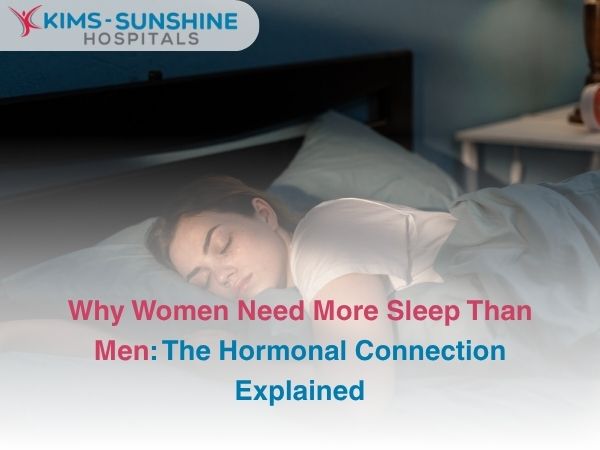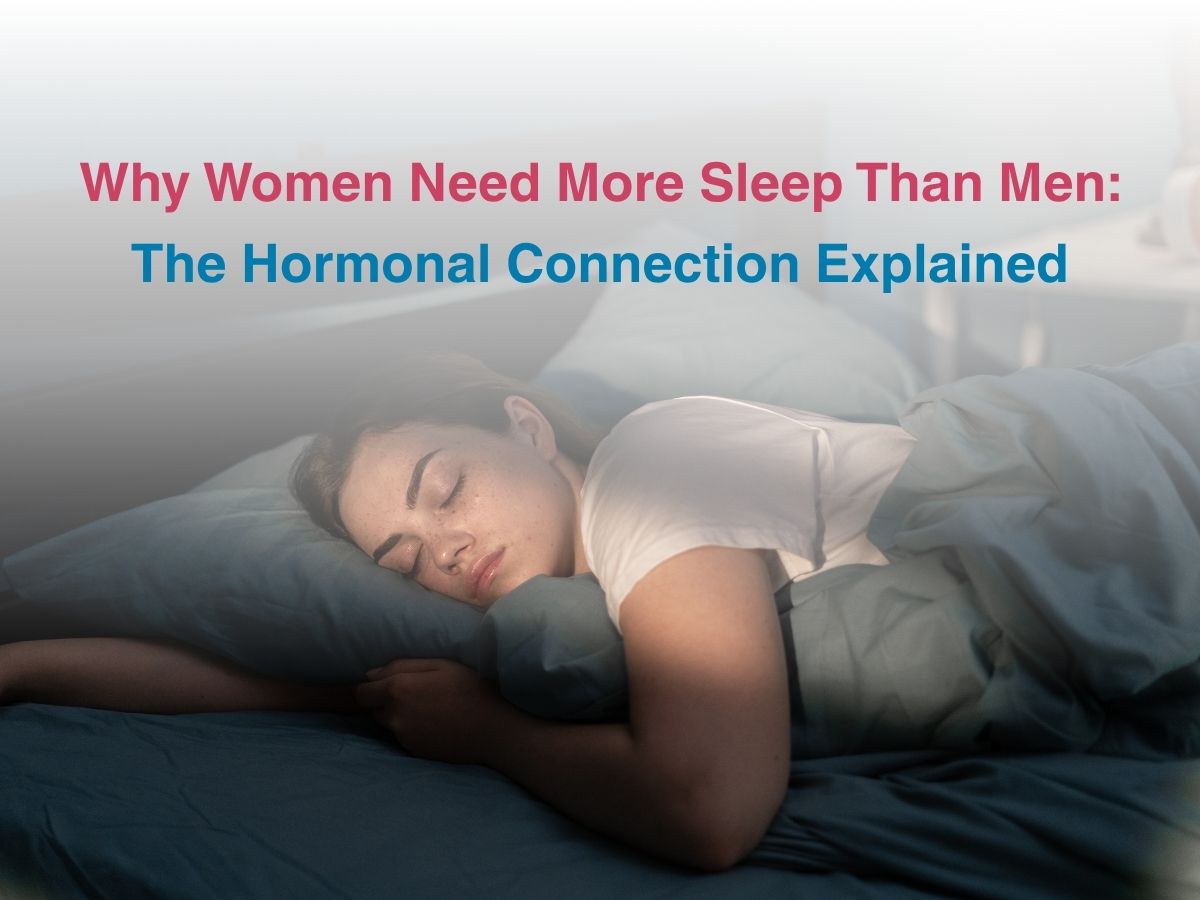
Why Women Need More Sleep Than Men: The Hormonal Connection Explained

Sleep is a super important part of your routine and getting enough sleep can actually keep you disease free for long. Most of us have grown up with this rule regarding how much to sleep in a day- 7-9 hours and while this rule is not completely wrong, it is only an estimate, especially when women are considered. Sleep is a process that is influenced by many factors- amount of light you are exposed to, hormonal activity and how your brain reacts to such feedback loops, which is how the circadian rhythm behaves. Both men and women have the same sleep cycles, but quality of sleep is what is the deciding factor here.
Why Women Need More Sleep
Generally speaking, women need slightly more sleep than men- about 11-20 minutes longer. This is because more women deal with sleep related disorders and hormonal fluctuations that happen all through their lives. Restful sleep can be hard to come by, if a woman is a primary caregiver, if she is working a stressful job or has to deal with both- along with the fact that women are expected to multitask almost always, if she is pregnant, pre-menopausal or menopausal; while men don’t really deal with such highly changing demands, nor such marked hormonal changes. While studies have not been able to zero down on exactly how much extra sleep women need everyday, they have come to one solid conclusion- if women sleep for less than 6 hours every night, they will deal with sleep deprivation.
Sleep Cycle Differences Between Men And Women
Studies have shown that though there are 4 clear stages of sleep, how much time each gender spends in each stage can be different. Men tend to fall asleep sooner than women in most cases. Men also spend longer in the first two stages of the sleep cycle and NOT as long in the deep sleep stage. Women however tend to spend more time in the deep sleep stage, though REM sleep is not as long.
Also, the circadian rhythm plays an important part in sleeping- with women wanting to go to bed earlier than men and more melatonin activity in women, than in men.
Effects Of Hormonal Changes On Sleep
Women have to deal with hormonal fluxes in some form or the other, all through their lives. The first hormonal shift occurs with the beginning of menstruation, then is more pronounced during pregnancy and breastfeeding. As women continue to lose sleep over the many years, they enter the pre-menopausal stage, which sets the clock for how sleep will be when menopause hits.
Sound and comfortable sleep can be a distant dream, when you have PMS, or are pregnant and breastfeeding. This is because you will wake up often to pee or have night sweats and other related signs. Gender norms are pervasive and have long dictated that women need to get up in the middle of the night to feed their child or to take care of anyone else in the house. Though you may need more sleep during pregnancy or menopause or pre-menopause, you probably won’t have the luxury of lying around in bed even for a few extra minutes, because duty will always call. Menopause in particular can leave you feeling sweaty and feeling tired and annoyed at night.
Conclusion
Some well known sleep deprivation effects in women include their propensity to gain more weight, to have metabolic issues, to feel more depressed or anxious and to have more chronic pain than their male counterparts. Tips for improving sleep in women include following sustainable sleep hygiene rules- like having a consistent bed time, making sure there are no screens in the room, that the bedding is comfortable and the room is not too hot or cold to fall asleep in. Some doctors also ask you to understand what your chronotype is and then go to bed accordingly, and only when you feel sleepy, as opposed to sticking to a strict bed schedule, where you may just toss and turn and annoy your partner who may be sound asleep. Sleep needs to be restorative and peaceful and while the way hormones work cannot change, we can try to understand how other factors influence sleep quality and allow our mothers, sisters, wives and everyone else to sleep just for a little longer and to help them sleep better in the long run.






